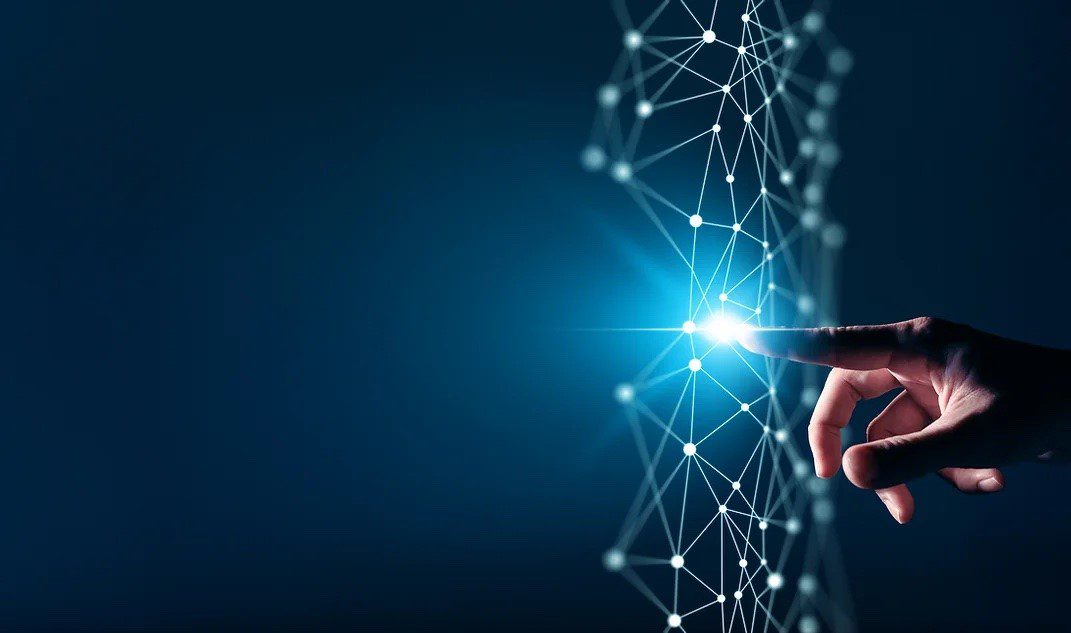The blockchain revolution has brought a new form of organization—the Decentralized Autonomous Organization (DAO). This new type of organization is built on the principle of decentralization and offers organizations a way to conduct transactions on the blockchain more securely and cost-efficiently. In this article, we will discuss the impact that DAOs have had on blockchain transactions, their benefits, challenges, and future potential.
What are decentralized autonomous organizations (DAOs)?
Decentralized Autonomous Organizations, more commonly referred to as “DAOs,” are companies or organizations operated entirely autonomously and powered by a set of rules encoded into digital contracts. They operate on a decentralized ledger using blockchain technology, meaning there’s no centralized point of control, and the code is fully open source.
Token holders finance these organizations and hold ownership of their stake in the project, entitling them to any returns generated from their investment. DAOs remove intermediaries like banks or governments and make decisions via voting rights. However, individual members can still receive different levels of authority based on their respective stakes in the organization. As a result, these organizations provide greater transparency and flexibility than traditional companies, even as the benefits of using digital money abound.
How did DAOs evolve from traditional organizations
Decentralized Autonomous Organizations (DAOs) have evolved from traditional business models and are enabled by blockchain networks. DAOs allow so-called members or users to interact with each other without relying on a central intermediary. This differs from the more traditional corporate governance models, where decision-making is typically centralized in one person or institution.
What are their impacts on blockchain transactions?
As a result, DAOs provide an automated, secure way to transact and manage financials using blockchain technology and smart contracts while giving participants power and autonomy. As the use of DAOs grows, they have had an increasingly positive impact on blockchain transactions by reducing overhead costs associated with compliance, decentralizing control over operations, increasing data security and transparency, providing quicker settlement processing times, minimizing double spending risk, and reducing third-party involvement.
While there are still challenges related to proper regulation of these digital organizations, their continued adoption promises to reshape how people interact with each other through new decentralized ways of doing business.
Benefits of using a DAO for blockchain transactions
Improved transparency and trust
Using a DAO to conduct blockchain transactions allows for more transparency than traditional organizations, as all participants are connected through a single shared ledger. This ensures that all parties involved have access to the same information, eliminating potential discrepancies that could lead to disputes or mistrust between them.
Cost savings
Traditional organizations require high overhead costs, such as staffing and infrastructure. In comparison, DAOs can significantly reduce these costs as their decentralized nature eliminates the need for expensive staff and resources, resulting in more significant cost savings for those utilizing them.
Faster transactions
An additional benefit of using a DAO is faster transaction times than traditional organizations. Its distributed ledger enables the storage and processing of all participants’ data on multiple nodes simultaneously, eliminating any bottlenecks commonly associated with traditional organizational systems.
Increased security
Finally, using a DAO-based system increases overall security due to its decentralized model, which makes it nearly impossible for malicious actors to target or manipulate the data stored within it. Because no single entity controls the entire system, each node must reach an agreement on any changes before implementing them on the blockchain. This feature makes it much more secure than traditional centralized organizations.
Challenges posed by DAOs on blockchain transactions
Security concerns
One of the most significant challenges posed by DAOs on blockchain transactions is their need for a central authority governing the process. As no one oversees or controls the network, this opens up potential security risks as malicious actors could exploit the system to gain access to sensitive data or manipulate records.
Legal implications
Decentralization and anonymity of DAO-based transactions can also create potential legal implications, such as determining who is liable for any damages that may occur from a DAO rather than a traditional organization. Additionally, due to their decentralized nature, some countries may have difficulty enforcing specific regulations, which could affect the transaction process.
Scalability issues
Using a DAO for blockchain transactions poses another challenge, which is scalability. As the network adds more participants, it processes larger amounts of data, resulting in slower transaction times and potential web congestion.
Lack of experience
Most importantly, many individuals and organizations still need to gain experience utilizing a DAO-based system for conducting blockchain transactions. They may require assistance in understanding how it works and in determining the best way to utilize its features to achieve maximum efficiency and cost savings.
Summing up
As blockchain technology continues to evolve, so do the potential benefits and applications of utilizing a DAO-based system for transactions. By leveraging their distributed ledger structure and their scalability and adaptability, DAOs have a bright future in enabling robust, secure, and cost-effective transactions on the blockchain. Additionally, their increased efficiency through a networked structure allowing for distributed data storage and processing could open up many new opportunities in this space. Ultimately, with the continued advancement of technology coupled with new innovative use cases, DAOs will likely remain at the forefront of blockchain transaction processing for some time.



































